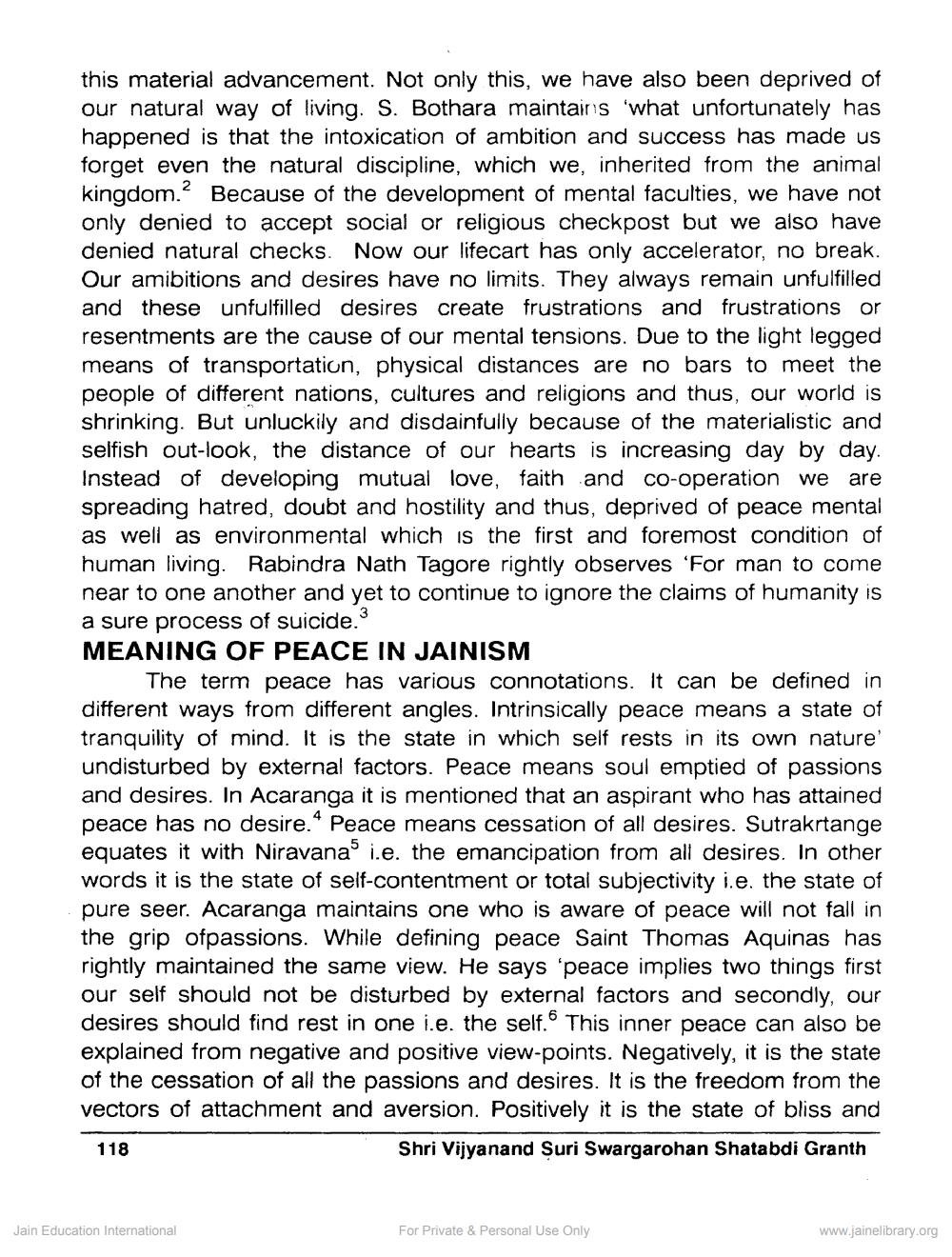Book Title: Jain Concept of Peace Author(s): Sagarmal Jain Publisher: Z_Vijyanandsuri_Swargarohan_Shatabdi_Granth_012023.pdf View full book textPage 3
________________ this material advancement. Not only this, we have also been deprived of our natural way of living. S. Bothara maintains 'what unfortunately has happened is that the intoxication of ambition and success has made us forget even the natural discipline, which we, inherited from the animal kingdom.2 Because of the development of mental faculties, we have not only denied to accept social or religious checkpost but we also have denied natural checks. Now our lifecart has only accelerator, no break. Our amibitions and desires have no limits. They always remain unfulfilled and these unfulfilled desires create frustrations and frustrations or resentments are the cause of our mental tensions. Due to the light legged means of transportation, physical distances are no bars to meet the people of different nations, cultures and religions and thus, our world is shrinking. But unluckily and disdainfully because of the materialistic and selfish out-look, the distance of our hearts is increasing day by day. Instead of developing mutual love, faith and co-operation we are spreading hatred, doubt and hostility and thus, deprived of peace mental as well as environmental which is the first and foremost condition of human living. Rabindra Nath Tagore rightly observes 'For man to come near to one another and yet to continue to ignore the claims of humanity is a sure process of suicide. 3 MEANING OF PEACE IN JAINISM 4 The term peace has various connotations. It can be defined in different ways from different angles. Intrinsically peace means a state of tranquility of mind. It is the state in which self rests in its own nature' undisturbed by external factors. Peace means soul emptied of passions and desires. In Acaranga it is mentioned that an aspirant who has attained peace has no desire.* Peace means cessation of all desires. Sutrakrtange equates it with Niravana i.e. the emancipation from all desires. In other words it is the state of self-contentment or total subjectivity i.e. the state of pure seer. Acaranga maintains one who is aware of peace will not fall in the grip ofpassions. While defining peace Saint Thomas Aquinas has rightly maintained the same view. He says 'peace implies two things first our self should not be disturbed by external factors and secondly, our desires should find rest in one i.e. the self. This inner peace can also be explained from negative and positive view-points. Negatively, it is the state of the cessation of all the passions and desires. It is the freedom from the vectors of attachment and aversion. Positively it is the state of bliss and Shri Vijyanand Suri Swargarohan Shatabdi Granth 6 118 Jain Education International For Private & Personal Use Only www.jainelibrary.orgPage Navigation
1 2 3 4 5 6 7 8 9 10 11 12 13 14 15 16 17
